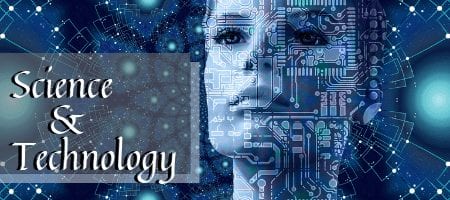-
Economics 101
- Dollars and Cents: How Money is Made – Lesson
- Supply and Demand: It’s Basic Economics – Lesson
- What Is Credit and How Is It Used? – Lesson
- What is Interest? – Lesson
- Taxation: What is it? – Lesson
- What is GDP? – Lesson
- The Supply Chain Crisis – What Is It? – Lesson
- The Supply Chain Crisis – What Is It? – Quiz
-
The U.S. Monetary System
- The Story of the US Dollar – Lesson
- What’s the Deal with the Federal Reserve? – Lesson – VIDEO
- What’s the Deal with the Federal Reserve? – Quiz
- What is the Federal Reserve? – Lesson
- America’s Middle Class is the Best in the World? – Lesson
- National Debt: Will It Continue to Grow? – Lesson
- What’s Eating the US Economy These Days? – Lesson
- What’s Eating the US Economy These Days? – Quiz
-
Applied Economics
-
Cycles of the Economy
-
Economic Systems: Capitalism vs. Socialism
-
Talking Trade
-
All About Investing
-
The Future of Money
Is Universal Basic Income the Only Answer to AI? – Lesson
Technology doesn’t have to mean mass-unemployment.
Bill Gates and Elon Musk have said that artificial intelligence (A.I.) and the automatization of work will put much of the population out of work. They think the only answer is universal basic income. Is this true, or is there another solution?
For decades, A.I. has promised to make a better world. Finally, we are seeing some of these predictions come true. For years, software has been used to construct 3D maps from satellite images automatically. Google uses A.I. to create a self-driving car that maps out streets and roads all over the world. Robot lawnmowers and vacuum cleaners have made a dent in the home market. A.I. garbage separation machines are now better able to sort waste in a useful manner. Face recognition software has allowed governments to automate surveillance, and parking companies use such software to recognize license plate numbers and bill customers automatically.
Too Smart?
 Most would agree that this development is beneficial, but what if the machines become so smart that human labor can’t compete?
Most would agree that this development is beneficial, but what if the machines become so smart that human labor can’t compete?
If jobs disappear due to automatization, permanent unemployment awaits.
Elon Musk and Bill Gates have put their creativity to work and come up with a solution: give up. Pay people to do nothing. Is that the best they can do? Surely such intelligent people can come up with a way to utilize the talents of human beings.
An Attitude Problem?
Settling for universal basic income is to declare eternal hopelessness for a significant portion of the human population. It has built into it the hidden premise that many humans are useless – mere waste that needs to be fed and entertained while the machines handle the real work.
But we see all around us the seeds of solutions. Consider the new automats at McDonald’s where you can order your food on a touch screen rather than telling a human behind the counter to punch in your order. On the surface, it seems that a job has been eliminated, but the customers are still doing the job of punching in the order. Although the customer is not hired by McDonald’s, by doing part of the labor, the result is cheaper food.
It may seem like a trivial example, but it illustrates how machines can be used to increase the productivity of everyone. If a creative genius like Elon Musk had an equal desire to create work tools for the workforce as he has for going to Mars, he probably wouldn’t be proposing universal basic income.